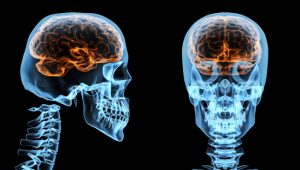
The findings add evidence to support that inflammation of the hippocampus alters its function and contributes to depressive symptoms. Hippocampus is associated with depression maintenance and multiple sclerosis pathology.
The researchers combined two complementary brain imaging techniques to study the relationship between the hippocampal immune response, functional connections, and depressive symptoms in 13 multiple sclerosis patients and 22 healthy controls. The imaging techniques included positron emission tomography (PET) and functional magnetic resonance imaging (fMRI).
PET imaging revealed immune activation in the hippocampus, explained first author Dr. Alessandro Colasanti. He added, “We also discovered that more inflammation was associated to more severe symptoms of depression.”
FMRI revealed that immune activation in the hippocampus alters its connection with other brain regions.
“This study, combining two advanced complementary brain imaging methods, suggests that the inflammation of the hippocampus affects the brain function and causes depression.” – explained Colasanti.
The findings of the study reveal that inflammation of the hippocampus could contribute to higher rates of depression among multiple sclerosis patients. The researchers suggest targeting brain inflammation can be an effective treatment option for depression in multiple sclerosis.
The link between multiple sclerosis and depression
It is well known that those living with multiple sclerosis have a higher risk of developing depression, compared to the general population, so there must be some sort of underlying connection between the two conditions.
Depression often stems from highly stressful situations, so it is pretty obvious why multiple sclerosis patients may be prone to depression – experiencing a drastic life change because of multiple sclerosis and living with the symptoms can be quite stressful.
On the other hand, multiple sclerosis may contribute to depression as it destroys the protective coating around the nerves, which are responsible for sending signals to regulate mood. Therefore, when these nerves become damaged, changes in moods may occur.
Lastly, depression may also be a side effect of multiple sclerosis medications and treatments such as steroids.
Treatment for depression in multiple sclerosis
It’s important to treat depression in multiple sclerosis immediately, as the longer it lingers the greater the impact it can have on the main condition. Depression in multiple sclerosis can not only worsen symptoms, but it can prompt a patient to make harming decisions – such as stopping their treatment, for example.
Symptoms of depression in multiple sclerosis include sadness, loss of energy, feelings of hopelessness, loss of enjoyment in once loved activities, difficulty concentrating, uncontrollable crying, difficulty making decisions, irritability, and an increased need for sleep.
Common treatments for depression in multiple sclerosis include the use of antidepressants, talking therapies such as cognitive behavioral therapy or psychotherapy, and St. John’s Wort, which may be effective in mild depression – always speak to your doctor prior to beginning a natural supplement as a treatment.
The earlier you begin treatment for depression, the greater your chances to improve multiple sclerosis outcomes.
Related Reading:
Multiple sclerosis, other autoimmune diseases may be prevented with new plant-derived drug: Study
An international team of researchers has recently come up a new plant-derived drug that can stop the progression of multiple sclerosis (MS), which is the most common autoimmune disease that affects the central nervous system. Continue reading…
Nearly 3 million American teens are affected by depression annually
Nearly three million American teenagers are affected by depression annually, according to a new government report. Paolo del Vecchio, director of the Center for Mental Health Services at the U.S. Substance Abuse and Mental Health Services Administration (SAMHSA. Continue reading…
Sources:
http://www.alphagalileo.org/ViewItem.aspx?ItemId=165908&CultureCode=en
http://www.biologicalpsychiatryjournal.com/article/S0006-3223(15)01025-2/abstract
http://www.webmd.com/multiple-sclerosis/guide/ms-depression
https://www.mssociety.org.uk/what-is-ms/signs-and-symptoms/mental-health/depression
http://my.clevelandclinic.org/services/neurological_institute/mellen-center-multiple-sclerosis/patient-education/hic-depression-and-ms